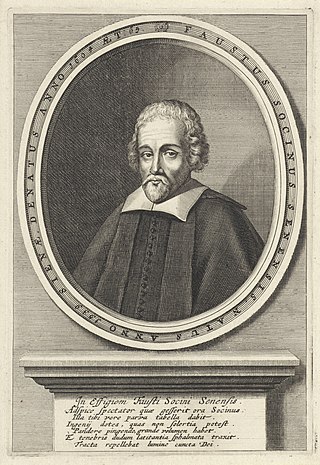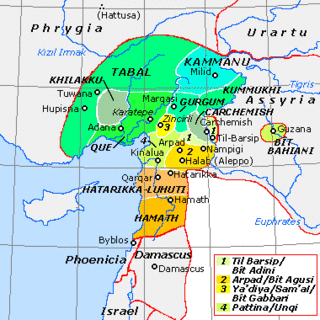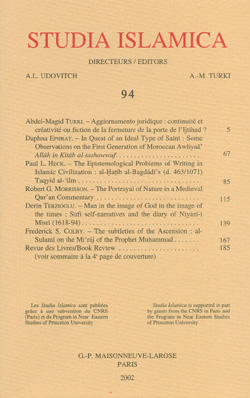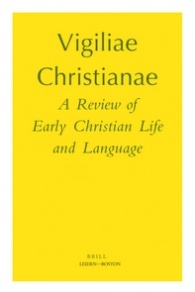
Tamil is a Dravidian language natively spoken by the Tamil people of South Asia. Tamil is an official language of the Indian state of Tamil Nadu, the sovereign nations of Sri Lanka and Singapore, and the Indian Union territory of Puducherry. Tamil is also spoken by significant minorities in the four other South Indian states of Kerala, Karnataka, Andhra Pradesh and Telangana, and the Union Territory of the Andaman and Nicobar Islands. It is also spoken by the Tamil diaspora found in many countries, including Malaysia, Myanmar, South Africa, United Kingdom, United States, Canada, Australia and Mauritius. Tamil is also natively spoken by the Sri Lankan Moors. One of 22 scheduled languages in the Constitution of India, Tamil was the first to be classified as a classical language of India.

Wei, known in historiography as the Northern Wei, Tuoba Wei, Yuan Wei and Later Wei, was founded by the Tuoba (Tabgach) clan of the Xianbei. The first of the Northern dynasties, it ruled northern China from 386 to 535 during the period of the Northern and Southern dynasties. Described as "part of an era of political turbulence and intense social and cultural change", the Northern Wei dynasty is particularly noted for unifying northern China in 439, bringing an end the chaotic Sixteen Kingdoms period, and strengthening imperial control over the rural landscape via reforms in 485. This was also a period of introduced foreign ideas, such as Buddhism, which became firmly established. The Northern Wei were referred to as "Plaited Barbarians" by writers of the Southern dynasties, who considered themselves the true upholders of Chinese culture.

Socinianism is a Nontrinitarian Christian belief system developed and co-founded during the Protestant Reformation by the Italian Renaissance humanists and theologians Lelio Sozzini and Fausto Sozzini, uncle and nephew, respectively.
Islamic studies refers to the academic study of Islam, and generally to academic multidisciplinary "studies" programs—programs similar to others that focus on the history, texts and theologies of other religious traditions, such as Eastern Christian Studies or Jewish Studies but also fields such as —where scholars from diverse disciplines participate and exchange ideas pertaining to the particular field of study.
ʿIlm al-kalām, usually foreshortened to kalām and sometimes called "Islamic scholastic theology" or "speculative theology", is the philosophical study of Islamic doctrine ('aqa'id). It was born out of the need to establish and defend the tenets of the Islamic faith against the philosophical doubters. However, this picture has been increasingly questioned by scholarship that attempts to show that kalām was in fact a demonstrative rather than a dialectical science and was always intellectually creative.
Richard Henry Popkin was an American academic philosopher who specialized in the history of enlightenment philosophy and early modern anti-dogmatism. His 1960 work The History of Scepticism from Erasmus to Descartes introduced one previously unrecognized influence on Western thought in the seventeenth century, the Pyrrhonian Scepticism of Sextus Empiricus. Popkin also was an internationally acclaimed scholar on Christian millenarianism and Jewish messianism.

Malatya Province is a province of Turkey. It is part of a larger mountainous area. The capital of the province is Malatya. The area of Malatya province is 12,313 km². Malatya Province had a population of 853,658 according to the results of 2000 census, whereas in 2010 it had a population of 740,643. The provincial center, the city of Malatya, has a population of 426,381 (2010).

Tamiḻakam refers to the geographical region inhabited by the ancient Tamil people, covering the southernmost region of the Indian subcontinent. Tamilakam covered today's Tamil Nadu, Kerala, Puducherry, Lakshadweep and southern parts of Andhra Pradesh and Karnataka. Traditional accounts and the Tolkāppiyam referred to these territories as a single cultural area, where Tamil was the natural language and permeated the culture of all its inhabitants. The ancient Tamil country was divided into kingdoms. The best known among them were the Cheras, Cholas, Pandyans and Pallavas. During the Sangam period, Tamil culture began to spread outside Tamilakam. Ancient Tamil settlements were also established in Sri Lanka and the Maldives (Giravarus).

The states called Syro-Hittite, Neo-Hittite, or Luwian-Aramean, were Luwian and Aramean regional polities of the Iron Age, situated in southeastern parts of modern Turkey and northwestern parts of modern Syria, known in ancient times as lands of Hatti and Aram. They arose following the collapse of the Hittite New Kingdom in the 12th century BCE, and lasted until they were subdued by the Assyrian Empire in the 8th century BCE. They are grouped together by scholars, on the basis of several cultural criteria, that are recognized as similar and mutually shared between both societies, northern (Luwian) and southern (Aramean). Cultural exchange between those societies is seen as a specific regional phenomenon, particularly in light of significant linguistic distinctions between the two main regional languages, with Luwian belonging to the Anatolian group of Indo-European languages, and Aramaic belonging to the Northwest Semitic group of Semitic languages. Several questions related to the regional grouping of Luwian and Aramaean states are viewed differently among scholars, including some views that are critical towards such grouping in general.

Studia Islamica is a biannual peer-reviewed academic journal covering Islamic studies focusing on the history, religion, law, literature, and language of the Muslim world, primarily of the Southwest Asian and Mediterranean regions. The editor-in-chief is Houari Touati. Articles are published in English or French.
Barbara Yorke FRHistS FSA is a historian of Anglo-Saxon England, specialising in many subtopics, including 19th-century Anglo-Saxonism. She is currently emeritus professor of early Medieval history at the University of Winchester, and is a fellow of the Royal Historical Society. She is an honorary professor of the Institute of Archaeology at University College London.
Steven Joseph Engler is a Canadian scholar of religion, Professor at Mount Royal University, Professor Colaborador in the Graduate Program in Ciêncas da Religião at the Pontifical Catholic University of São Paulo (Brazil), and affiliate Professor in the Department of Religion at Concordia University.
Buddhist studies, also known as Buddhology, is the academic study of Buddhism. The term Buddhology was coined in the early 20th century by the Unitarian minister Joseph Estlin Carpenter to mean the "study of Buddhahood, the nature of the Buddha, and doctrines of a Buddha", but the terms Buddhology and Buddhist studies are generally synonymous in the contemporary context. According to William M. Johnston, in some specific contexts, Buddhology may be viewed as a subset of Buddhist studies, with a focus on Buddhist hermeneutics, exegesis, ontology and Buddha's attributes. Scholars of Buddhist studies focus on the history, culture, archaeology, arts, philology, anthropology, sociology, theology, philosophy, practices, interreligious comparative studies and other subjects related to Buddhism.

Vigiliae Christianae: A Review of Early Christian Life and Languages is a peer-reviewed academic journal published by Brill Publishers in the field of early Christian studies.

Brill Academic Publishers is a Dutch international academic publisher founded in 1683 in Leiden, Netherlands. With offices in Leiden, Boston, Paderborn and Singapore, Brill today publishes 275 journals and around 1200 new books and reference works each year all of which are "subject to external, single or double-blind peer review." In addition, Brill provides of primary source materials online and on microform for researchers in the humanities and social sciences.

De Beneficiis is a first-century work by Seneca the Younger. It forms part of a series of moral essays composed by Seneca. De Beneficiis concerns the award and reception of gifts and favours within society, and examines the complex nature and role of gratitude within the context of Stoic ethics.

Rotem Kowner is an Israeli historian and psychologist specializing in the history of modern Japan, and a full professor in the Department of Asian Studies at the University of Haifa.

Andrew Colin Gow is a Canadian historian of medieval and early modern Europe and a noted scholar of early modern witchcraft. He completed his Ph.D. with the Reformation scholar Heiko Oberman. He has served as the Editor-in-Chief of Brill Publishers' book series Studies in Medieval and Reformation Traditions from 2000-2020 and was succeeded by Christopher Ocker in June 2020.

Abbas Amanat is an Iranian-born American historian, scholar, author, editor, and professor. He serves as the William Graham Sumner Professor of History at Yale University and Director of the Yale Program in Iranian Studies.
The government of the Mughal Empire was a highly centralised bureaucracy, most of which was instituted during the rule of the third Mughal emperor, Akbar. The central government was headed by the Mughal emperor; immediately beneath him were four ministries. The finance/revenue ministry was responsible for controlling revenues from the empire's territories, calculating tax revenues, and using this information to distribute assignments. The ministry of the military (army/intelligence) was headed by an official titled mir bakhshi, who was in charge of military organisation, messenger service, and the mansabdari system. The ministry in charge of law/religious patronage was the responsibility of the sadr as-sudr, who appointed judges and managed charities and stipends. Another ministry was dedicated to the imperial household and public works.













